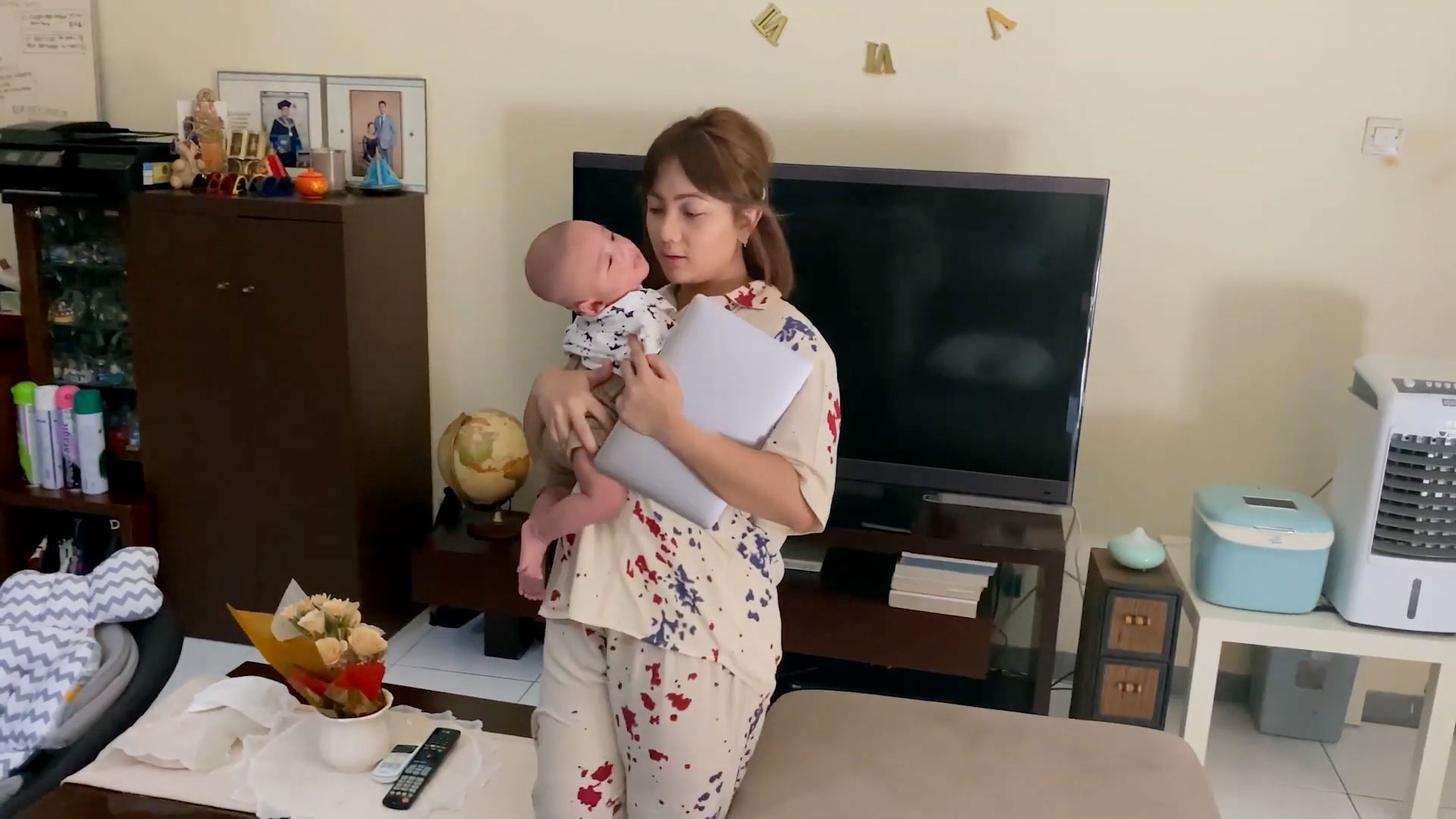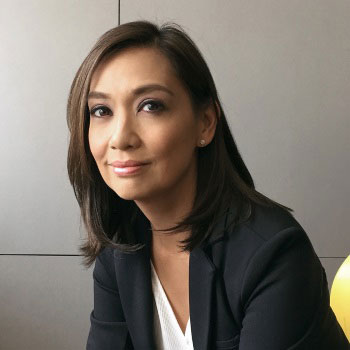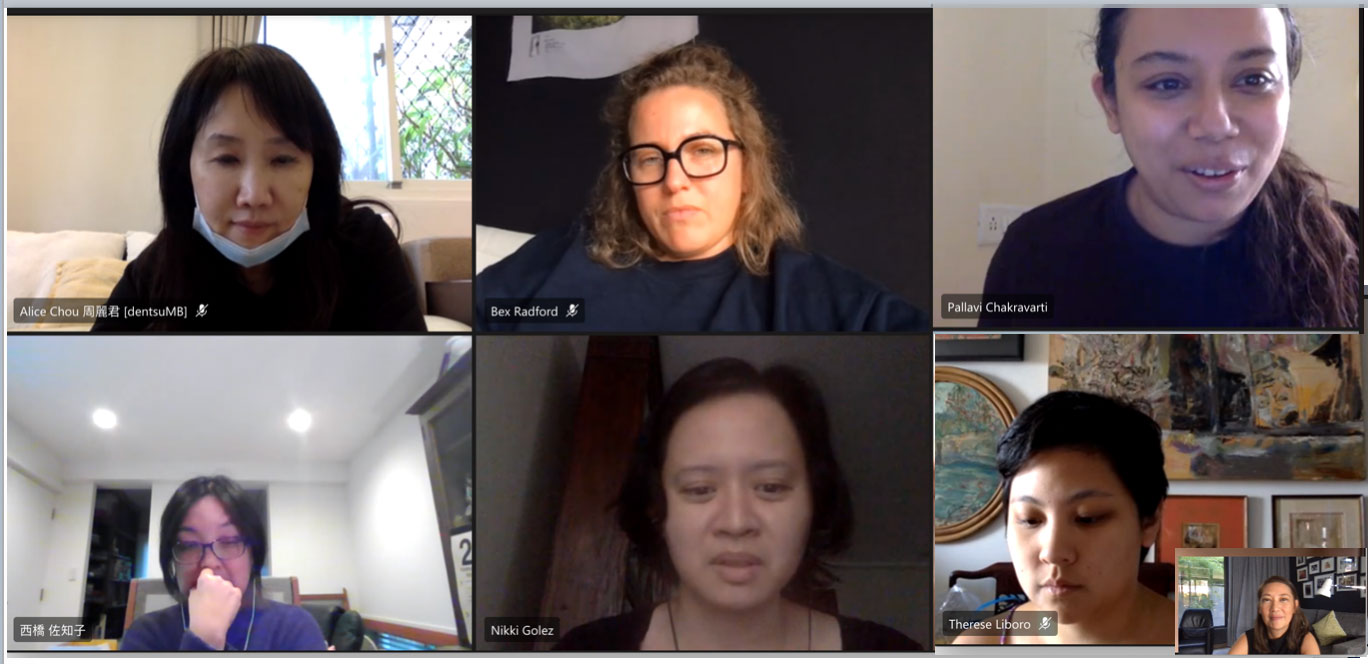Dentsu's Emotional Internal Video About Women's WFH Struggles Accelerates Change
Much has been said about the rise of workloads during the pandemic, especially for women. But few companies are doing much about it. With that in mind, Dentsu APAC designed a program specifically to help women better bear the load.
Here's the hero video for Dentsu Women APAC, titled "Women from Home."
The work launched network-wide on March 8, prompted by an internal women's forum at the start of the year. Informed by true stories, it will likely resonate with working women anywhere who are juggling children, and other responsibilities, alongside demanding jobs, from home. Many scenes struck us personally: women cook and coddle kids while on calls, or sneak into quiet spaces, like hallways, for video meetings, then muster the strength to work late nights.
It ends with a series of promises that aspire to make their lives easier from within Dentsu's corporate structure.
We spoke with Merlee Jayme about the video, and the agency's plans, in more detail. Jayme has two heavy-hitting roles in the Dentsu family: She is global president at dentsuMcgarrybowen, and diversity and inclusion head for all of Dentsu's APAC territories. Check out the interview below.
Muse: As the global president at dentsuMcgarrybowen, it must be quite a thing to take on the D&I duties for Dentsu APAC in addition! How long have you held that second role, and what are its objectives?
Merlee Jayme: I have been the diversity and inclusion head for APAC since July last year. For the Americas, it is Christena Pyle, and for EMEA, Sarra Adams.
My council's overall objectives are the following:
• To be a purposeful, supportive and responsive team, with genuine empathy at its core.
• To fully understand the cultural diversity of the APAC markets and their challenges.
• To create an anti-racist, anti-bias region, unified with the right commitments, programs, investments and measurable actions to address our priority issues.
• Align and deliver in conjunction with established Dentsu Global I&D principles.
APAC is very diverse. It is made up of different markets of varying economic development. Over one-fifth of our people come from acquisition, so you can imagine the entrepreneurial talent in these offices, but also the challenge of making them all feel included at Dentsu.
If you look at the awards we've won over the years (recently we won ADFEST Network of the Year and Spikes Asia Network of the Year), you can say that the talent, striving so hard to be known in the world, is strong. We also have a well-balanced female-to-male ratio generally, but have to push women in graded roles to leadership in the future.
APAC is quite advanced, with many initiatives from all markets that address this principle. Studying the needs of the markets and seeing the efforts, we are going to focus on these:
Women empowerment. With programs like Women@DAN, FemaleFoundry, and Sistergood, we will continue to create a community of strong women, to have a voice, to lean in, to increase their ability to control strategic life choices and access opportunities.
Gender diversity/LGBTQ. We have to promote a fair representation of people of different genders, including people of non-binary genders, acknowledging a person's gender identity, and creating an environment which values and embraces individual differences.
Neurodiversity. This represents a new and fundamentally different way of looking at neurological differences that were traditionally pathologized. We recognize that neurodiverse people have exceptional abilities: from a person with ADHD's hyperfocus, to an autistic person's exceptional memory or even savant skills. Thus, we have hired some for data and technology-based services.
Mental health. This is very relevant, especially among our younger colleagues today. Anxiety, depression and bipolar disorder are mental health problems experienced in our industry—especially in times of uncertainty. We can build a psychologically safe workplace for them with the right professional help.
Racial equality. We want to create an environment where everyone can be given the same opportunities, regardless of race and ethnicity.
There is a lot of doubt about whether it is productive to have a D&I officer in a company. What makes this role important?
This role is dear to me. I have had many instances where I experienced gender stereotyping, being a woman and Asian—usually in big meetings, jury rooms and speaking engagements in different parts of the world. I can fully relate to how my Asian sisters feel every time they are discriminated against, not heard or not given the chance to speak up.
As we are recognizing the power of diversity, there is an equally important focus on strengthening our culture of inclusion: making everyone in our network feel respected and valued for who they are as individuals or groups, regardless of background, gender, race and age.
How does this role interact with, or inform, your position as global president?
A huge part of my role as president is people and collaboration. As a leader, it is important that your teams and colleagues see you as knowledgeable on equity practice, vocal about the importance of diversity and inclusion, and as a good example of inclusive leadership, with important traits such as curiosity, self-awareness, vulnerability, courage and empathy.
This will be best for our business, as people will be inspired to create amazing idea-led experiences for our network and clients.
What resources do you think companies should be prepared to invest in if they want to take diversity and inclusion seriously?
We take the D&I subject seriously:
• We establish purposeful mentorship programs to grow diversity with deliberate diverse mentorship. This will call for more investment in diversity training to get this as an organization rhythm.
• We recognize that generalized, one-size-fits-all solutions for diversity and inclusion training are highly ineffective, so we tailor training to address specific issues in an engaging way.
• We encourage fearless speak-up: review the need to invest in a speak-up on callouts on inappropriate experience and observation, with informal remediation, where neural mediators can intervene in setting a true sense of neutrality. This will cost less than litigation fees! And it can be implemented as a first step to remove all-or-nothing thinking. We supplement this with affinity group support and related budget for "bonding and sharing."
• We celebrate cultures and festivals. We already have flexible time off in markets, with ethnic festival celebrations recognized for extra time off, across the board.
What do you hope to accomplish in 2021?
To champion diverse talent and promote inclusive behaviors across the Dentsu network, starting in APAC. Collaboration will push us forward to achieve this as a people and as a network. We aim to take further steps in diversity, equity and inclusion conversations … and more importantly, turn all this talk into action.
Tell us about the WFH video. How was it conceived, and who was it designed for?
In January, we had a women's forum to plan for the year. In a breakout session, we had some small-talk among ourselves, and I started hearing stories of home. I could feel that everyone was tired, working more than double-time, distracted, burdened. Women said they found it hard to focus on work with the lack of time, given other responsibilities at home.
Back-to-back meetings make it even more difficult for single women to take care of themselves, keep their spaces clean, or help parents with chores. Married women and moms have the burden of making three meals a day for the family, washing dishes, tutoring kids, and more. The situation has taken a heavy toll on the daily lives of women. In fact, their question today is, how can we now grow our careers?
It was clear to me that women were getting bogged down by a higher share of domestic chores and responsibilities with the work from home strategy. Even when both partners are working from home, women handle a majority share of domestic responsibilities.
Then the "What if?" happened. What if we go to all our different markets and ask women to share their home stories? Creating awareness for this was just half of the story. I wanted the network to take notice, see our women, understand their plight, and come up with real action to help lighten the load.
What do you hope people extract from this video?
Extraordinary women need extraordinary help.
Do you think men at Dentsu have a role in helping or supporting women working from home?
There were a lot of very supportive men at Dentsu. Our women empowerment council is even led by a man: Phil Adrien. Many submitted new ideas. What's great is that the film touched them so much, they became more sensitive to their woman partners as well.
What would you say to Dentsu men who worry that further supporting women is not "equal treatment," or somehow might negatively impact them?
I haven't heard any remark of that sort.
While working on this piece, did anything surprise you?
Position, eco-class, age, and status (whether single or married) don't really matter here. All women can relate to this struggle of WFH.
"Women From Home" features working Dentsu women all over the world. How did you organize production?
I simply reached out, with help from the D&I team. Women from 10 countries got involved in the project: Australia, Hong Kong, Indonesia, Japan, Philippines, Singapore, Sri Lanka, Taiwan, India and New Zealand. We had 22 women join the film project. We interviewed them one by one and listened to their stories. From these, we shared the real scenes that we needed to capture.
I asked Krizzie Syfu, a young mom herself, to direct this film out of this strange situation of WFH. Funny how her baby is seen in our Zoom briefing calls. Janet Liong graciously produced it for us. Organizing all the women from different countries, and guiding them on how to shoot their own videos, was not easy. If there's a tool of the trade that everyone should have, I must say it has to be the ring light. Surprisingly, most of them had one.
Some of them openly shared their feelings with us:
• Having so much household work to do that they couldn't get any professional work done.
• Although their husbands are good partners, when it comes to parenting and taking the lead on things like cleaning, dishes and laundry, they often feel that the responsibility of managing the home falls on them.
• There's this automatic default responsibility.
• Their husbands won't think of grocery lists, their kids' homework, their parents' medication, and the mental load. Having to juggle things like healthcare appointments, meal plans and house repairs can take a toll on women's physical and mental health.
The result is this raw, heartbreaking film of a woman's sacrifice to have it all: succeeding in family and home life, and in her career.
What kind of feedback or insights did you receive when you shared this video?
Everyone who saw the video was touched. Some got teary-eyed. For some women, they saw themselves in it. The men showed all-out support. It is not every day that we get to see the harsh reality of our colleagues at home, especially now that we are all in a very impersonal, Zoom-zone situation.
The end of the video lists a series of propositions for improving the WFH mom experience: zero meetings before meals, giving moms "me time," Theycare kid Zooms, Wellness Wednesdays, a chore-share program called HeSheWorks, free breakfast on Saturday mornings. How are you rolling these programs out, and what exactly do they consist of? Which countries will they impact?
Brainstorming with the D&I team, and some award-winning Dentsu creative heads—Alice Chou of Dentsu MB Taiwan, Sachiko Nishihashi from Dentsu Tokyo, Pallavi Chakravarti from Taproot Dentsu India, and Nikki Golez and Therese Liboro from Dentsu Jayme Syfu—we came up with simple solutions to lighten workloads and help women in the network.
Zero meeting hours before meals gives them proper time to prepare for their families. A virtual daycare we aptly call "Theycare" is a kids Zoom, where colleagues can entertain kids in different households through stories and crafts to give moms "me time."
Wellness Wednesdays are something we're already doing in the Philippines. It's a break from stress in the middle of the week.
Free breakfast on Saturday mornings let women sleep in and relax a bit.
Lastly, and very importantly, is HeSheWorks, a chore share program. This was inspired by our Dentsu Webchutney office's award-winning work, "The Better Half Cookbook," for their client Swiggy. This idea pushes the benefits of both the man and the woman in the house to share the task of cooking meals.
We also created a website where anyone in the network can submit more ideas to help.
The only countries not really in lockdown mode are New Zealand, Taiwan and China. However, some moms in Taiwan, for example, still volunteered to be in the film—relating to the juggling of home and work life.
In what other ways does Dentsu support working women? A common complaint in agency life is that maternity leave is short, and when people return to their jobs, they often find they've been replaced, or that those jobs have become dead-ends, which creates a disincentive to be productive. Do you have anything in place for addressing issues like this one?
For us, supporting working women means:
• Helping employees find meaning and enjoyment in their work. Managers must be coached to take time to learn their personal values, passions, strengths and life goals, then brainstorm ways to integrate these things into their career. Small changes in how work is framed and executed can go a long way toward turning a job into a calling.
• Supporting remote working, with cognizance of feasible work hours to ensure there are lives outside of work—this is one we all need help with! Creative solutions, like job sharing—having multiple people share one role, like virtual work teams—and sabbatical options help us keep and engage good talent.
• Give all genders equal opportunities to get promotions, raises, and develop leadership skills, coupled with resources and support to achieve success, through mentoring or feasible alternatives.
Can you tell us something about this work that we don't already know?
I can't forget some of the stories. One of the single women took care of her autistic brother, a Covid survivor!
Another would be the separate videos of women sharing their wishes, which we featured on the website. One young mom of twins actually said, "I wish my mom was here."
If there was really one big help for me when I was a young mom, it was help from extended families, which is big in Asia. But the realities of the pandemic have made even this impossible.













